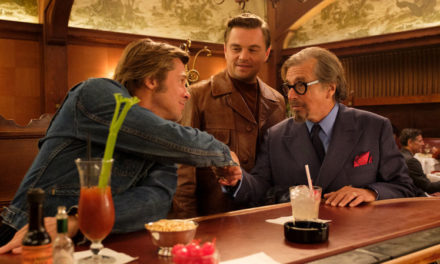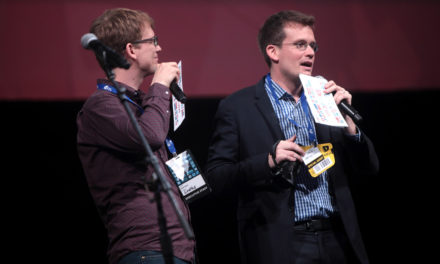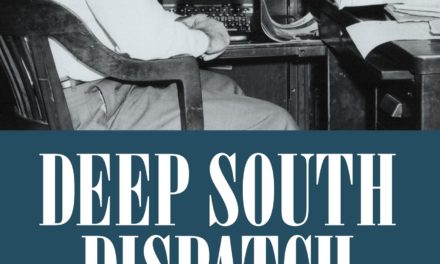Danish director Gustav Moller’s new film, “The Guilty,” is the most stressful movie you’ll watch this year. It’s nearly impossible not to have a physical reaction to the anxious atmosphere it builds and the high-stakes nature of every moment. The film’s inventive storytelling, layered performances and claustrophobic camerawork make it an exhilarating viewing experience. However, the predictability of its major plot twist causes some of the film’s thrills to ultimately fall flat.
“The Guilty” introduces us to Asger Holm (Jakob Cedergren), a police dispatcher whose mundane shift at work transforms into a harrowing race against time after he receives an emergency call from a woman named Iben (Jessica Dinnage), who has been abducted and fears for her life. Midway through their conversation, Iben abruptly hangs up the phone. Confined to his desk and chained to his phone, Holm desperately attempts to ensure the safety of Iben and her two children at home. Throughout this ordeal, shadowy details about Holm emerge, and viewers must piece together the mysterious nature of his past, as well as why his colleagues seem so wary of him.
The most interesting part of “The Guilty” does not lie in its story, but in the way it is told. The film is a single-location thriller, so the camera never leaves the confines of the police dispatch office where Holm is working. As such, the action of the film is never even seen by viewers. It is instead entirely revealed through phone calls between Holm and the other characters. This drastically limited scope of narration could have been frustrating, but is executed brilliantly and heightens the film’s tension. As an audience, we feel just as stuck and helpless as Holm, because we are confined by the setting like him. Our knowledge of the situations that unfold is just as restricted as his.
The feeling of being trapped is central to “The Guilty,” as Holm is trapped at his desk, and Iben is trapped by her abductor. This feeling is further reinforced by the film’s camerawork. Close-ups are frequent, so Asger is rarely shot below the torso. His face fills most frames — every drop of sweat is acutely visible. Sometimes the camera moves in even closer, focusing just on his shaking hands or a twitch of his eyes. This proximity creates an atmosphere of claustrophobia and boxes viewers in. The tension of the film is exacerbated by the use of long takes, making every second ticking by, as Iben is stuck with her captor, painfully apparent. Additionally, the soundtrack of the film — or lack thereof — enhances breath and ambient sound in the background, further creating a feeling of suffocation and closeness.
With this form of narration, solid performances are crucial to making the film believable and suspenseful, and luckily “The Guilty” delivers on that front. Cedergren’s turn as Asger is particularly astounding. His performance is, at first, subtle and controlled, with his facial expressions speaking volumes. This makes it all the more striking when, as the film progresses, he loses his composure. The voice performances are similarly pitch-perfect, particularly that of Jessica Dinnage, who is able to capture all the vulnerability and anxiety of being kidnapped through her vocals alone. Even Katinka Evers-Jahnsen, who voices Iben’s young daughter, delivers a nuanced portrayal, with each word full of fear and naivete.
As the film progresses, it becomes clear that Holm is willing to operate in ways that aren’t strictly lawful, and the lighting is used quite ingeniously to illustrate that. At the beginning of the film, Asger is in a bright, softly lit room. When he leaves this room and begins operating outside of his work capacity, his new setting is completely black, and what little light hits him is hard, bringing out all the shadows on his face. At the climax of the film, a red light on Asger’s monitor turns on and the entire room is bathed in crimson, highlighting the danger and risk of the situation Asger has created.
Despite the many innovations found in “The Guilty” in terms of its storytelling, its attempt to subvert expectations detracts from its impact. All the suspense of the film leads up to a plot twist, but the twist is so easily predictable that it is difficult not to feel let down. For all the boundaries it pushes in its form, its story turns out to be disappointingly conventional. Still, its star-making performances and clever narration make “The Guilty” well worth the watch. It reshapes the way suspense films can be told while sticking to the overarching norms of the genre. Above all, “The Guilty” is a nail-biting thriller that shows viewers not to take anything they see (or hear) for granted.
Grade: A-
Saru Garg (22C) is from the suburbs of Chicago and is majoring in human health and film studies. She began writing for the Wheel to have an outlet where she could express her love for entertainment in all its forms, from screwball comedies to surrealism to sitcoms. Don't mention David Lynch or "Parks and Recreation" around her or she will talk for hours. She also enjoys baking, reading and listening to copious amounts of Mitski. Contact Garg at saru.garg@emory.edu.






